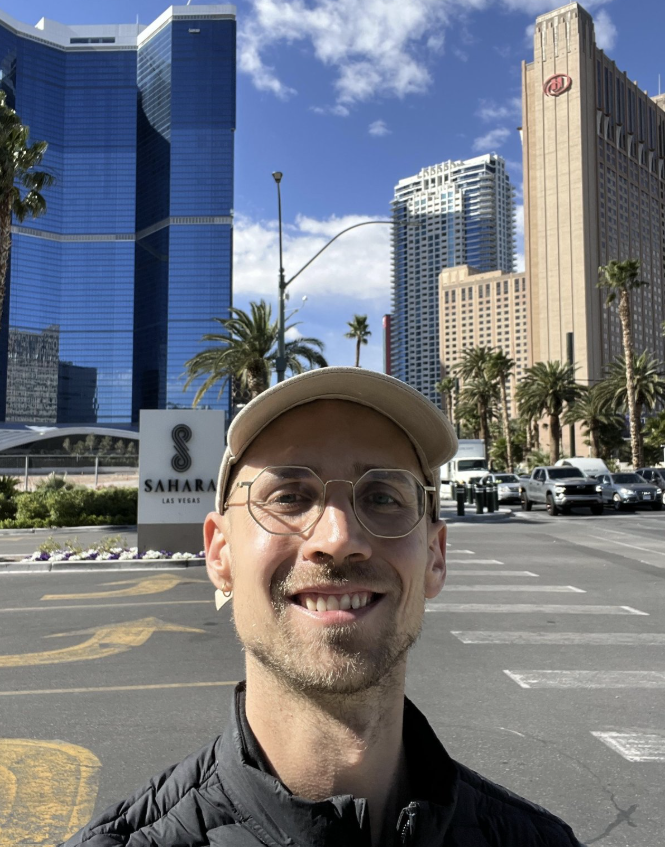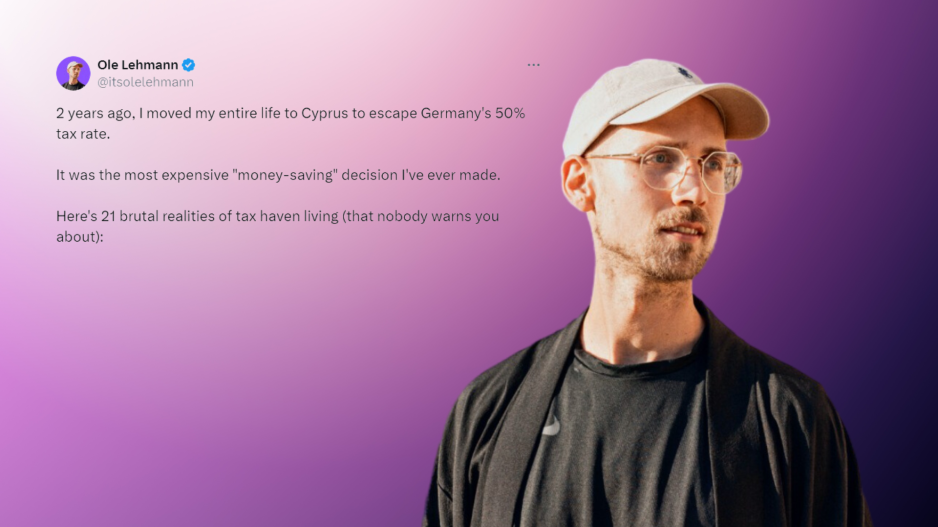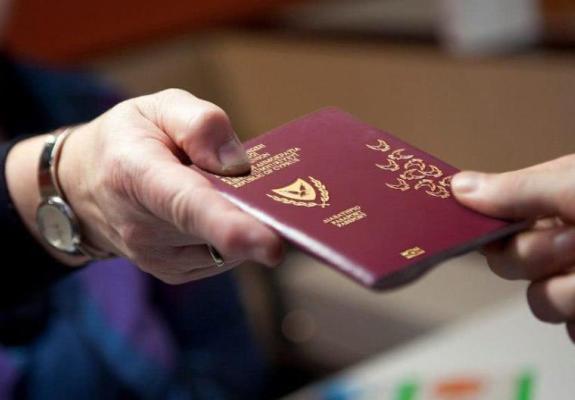Entrepreneur Goes Viral on X, Highlighting the ‘Tax Haven Realities’ of Life in Cyprus
While spreadsheets may guide our financial decisions, they rarely capture the deeper human elements that make a place feel like home.
In a thread that has garnered over 1,000 retweets, 10,000 likes, and more than 4 million impressions on X (formerly Twitter), German entrepreneur Ole Lehmann opened up about the highs and lows of relocating to Cyprus in pursuit of lower taxes. The founder of “The AI Solopreneur” moved to the island two years ago, determined to reduce Germany’s hefty 50% tax rate to Cyprus’s far more appealing 12.5%. Yet, as Lehmann reveals, the true cost of tax optimization extends beyond spreadsheets and affects one’s identity, relationships, and sense of home.
Paphos-based Ole Lehmann is the founder of The AI Solopreneur—an online community dedicated to helping solopreneurs leverage AI to earn more, work less, and future-proof their businesses. With a fast-growing following of over 26,000 people, Lehmann regularly shares insights on tech, business, and longevity. His recent viral thread serves as both a personal revelation and a word of warning to anyone considering an international move for purely financial reasons.
Lehmann recounts being “the spreadsheet guy” in Berlin, enthralled by the idea of halving his tax obligations. But he quickly discovered that focusing solely on tax savings was short-sighted. “I was solving the wrong equation entirely,” he tweeted. Although the numbers on paper looked irresistible, the day-to-day realities of island life—and the sacrifices required to maintain Cypriot residency—proved far more complex than he ever anticipated.
In one example, he describes the logistical headaches of shipping a simple squat rack, which took three weeks to arrive. “That’s when it hit me,” he wrote, “I’d optimized for numbers, not actual livability.”
A notable challenge Lehmann highlights is Cyprus’s 60-day residency requirement. While 60 days may sound flexible on paper, it effectively places strict limits on his ability to travel for business or to see family without jeopardizing his tax status. In his words, “I traded one ‘prison’ (high taxes) for another (day counting).”
This balancing act often leaves expats in a constant state of calculation. “Every family visit, business trip, or spontaneous opportunity becomes a complex calculation of residency risk,” he notes. The psychological toll of monitoring each day spent in or out of Cyprus is something standard accounting spreadsheets fail to capture.

Among the most resonant points in Lehmann’s thread is the notion of “rootlessness.” By choosing a new home purely for tax benefits, he and others in the same boat rarely develop deep personal ties to their host country. “When you choose a place purely for tax reasons,” he observes, “your subconscious knows it’s not really home.”
He also finds that many of the people he meets in Cyprus are focused on “wealth protection, not wealth creation.” Conversations revolve around the best tax schemes or asset protection strategies, rather than building up a thriving local business scene. As Lehmann puts it, “the community never solidifies because it’s in constant flux,” with many expats coming and going just to maintain their residency requirements.
Though Cyprus’s lower tax rate was initially a beacon for Lehmann, daily expenses and hidden costs pile up. Emergency flights home, higher shipping fees, and the back-and-forth travel needed to preserve business ties all eat into the very tax savings that drew him here. “Those impressive tax savings vanish faster than you’d expect,” he states, adding that “no spreadsheet can calculate” the personal costs of missing family events and uprooting one’s life.
Furthermore, being away from major innovation hubs such as San Francisco, New York, or Singapore slows professional momentum. “No amount of Zoom calls can replace the serendipity of being where things actually happen,” he remarks.

Lehmann makes it clear that Cyprus itself is not to blame. He describes the island as “really beautiful,” but acknowledges that relocating purely for tax reasons has overshadowed the perks of Mediterranean life. “If you wouldn’t live there without the tax advantage, don’t live there for the tax advantage,” he advises in a cautionary tone.
After two years, Lehmann plans to leave Cyprus next year, having realized the trade-offs weren’t worth it for him. His biggest takeaway? “Sometimes you have to optimize for the wrong thing to discover what the right things are,” he writes. In other words, life optimization and tax optimization rarely go hand in hand.






